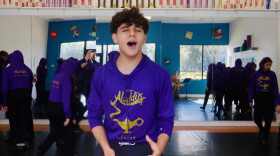Fort Myers was a part of a bizarre piece of music history 54 years ago this month.
More than 1,400 people jammed into the High Hat Club, a venue on what was then Anderson Avenue and now Martin Luther King Boulevard in Dunbar, to see the Queen of Soul, Aretha Franklin. The woman belting out some of the most popular songs of the time looked like Franklin, dressed like Franklin and sounded like Franklin ... but she wasn’t Franklin.
Not a single concertgoer noticed, or if they did, they didn’t complain to anyone about it. Fort Myers would be one of her last performances as Franklin. Jones, along with her manager, Lavell Hardy, were unmasked and arrested in Ocala three days later.
The voices that can retell the story have been silenced by time. The original newspaper clippings and a few magazine stories through the decades now do the talking.
Jones was a struggling mother of four near Richmond, Virginia in 1969. She sang in the church choir, but to make a few dollars, she would put on disguises so she could sing in local nightclubs and not be recognized.
Hardy, who had a minor R&B hit in 1968, sang in the same club with Jones and noticed how she looked and sounded like Franklin. He offered her $1,000 to play six shows in Florida as the opening act for Franklin. Jones, at first, turned him down, but the idea of opening for her idol was too enticing.
Jones discovered she’d been duped when she arrived in Melbourne. There was no Franklin. Hardy said Jones was going to be Franklin, and if she didn’t follow through he would dump her in the bay.
During the day, she was Jones, kept prisoner in a hotel room given two hamburgers as sustenance. At night, she turned into Franklin. She did three shows in three small Florida towns, each was a success. It was time for bigger venues.
Hardy contacted two Florida promoters, one a bandleader and one an assistant school principal, according to a 2018 Smithsonian magazine story. He said Franklin usually charged $20,000 a show, but for a short time, she was requesting $7,000. The bandleader even met Jones impersonating Franklin and thought she was the real thing.
Fort Myers was the first stop of the big venues for the Aretha Franklin Revue. A story in the Fort Myers News-Press dated January 23, 1969, detailed the local concert and the Ocala arrests.

Clifford Hart was owner of the High Hat Club. He told the News-Press that the promoters contacted him about using the club and began advertising it the Thursday before the Sunday night concert.
Charles Barnes, chairman of the Lee County Black Historical Society, said he remembered when he was a child seeing posters on telephone polls advertising big-time performers coming to town, but didn’t remember a specific Aretha Franklin concert.
The concertgoers paid between $5.50 and $6 a ticket, the equivalent of $44 and $48 today.
Hart said the promoters must have been paying Franklin lots of money to come to Fort Myers so he didn’t charge them to use the venue. He would make his money selling whiskey.
Hart said he didn’t know it was not Franklin. He told the News-Press that she sang six songs, but he left before the concert began and didn’t return until it was over.
“Some people who’d seen Aretha before didn’t think it was her, but nobody was real sure,” he said. “And nobody asked for their money back. They weren’t angry. It was a real good show.”
The Jet magazine story from 1969 described the concert this way: “when she sang the second song, ‘Baby, Baby Sweet Baby’ they roared as one: ‘that’s her! That’s Aretha!’ ‘’ They gave her a standing ovation at the end of the set.
Larry Hart, former Fort Myers police chief and Lee County treasurer, was Clifford Hart’s son. He was 14 at the time of the concert and didn’t remember it.
“I have not found a family member that remembers this,” he said in an e-mail. “A lot of them has passed away.”
Franklin’s promoters learned about the scam when they were putting together some Miami Beach concerts for her. Her lawyers called the Marion County prosecutor Gus Musleh, on January 16. Jones and Hardy were arrested soon after.
Hardy was charged with false advertising. Franklin agreed to testify against him at a March trial, but he eventually was freed after he agreed to leave Florida.
Jones pleaded her case, saying she was coerced into performing as Franklin. Prosecutor Musleh believed her. He asked her to sing, wanting to hear how much she sounded like Franklin. Her voice exploded from his office through the hallways and the courtroom. He loved her voice and dropped the charges.
Bad publicity is better than no publicity at all. Jones became a media darling. Ray Greene, a Jacksonville lawyer, signed her to a contract. She began touring. She was making $1,500 a concert. She met Duke Ellington and ended up on the cover of Jet magazine.
Jet reported that she became so well-known there was a Vickie Jones imposter playing in Richmond. Jones toured for a year but then decided to go back to Virginia to raise her four boys. She never sang professionally again, and she never met Aretha Franklin. She died in 2000.
WGCU is your trusted source for news and information in Southwest Florida. We are a nonprofit public service, and your support is more critical than ever. Keep public media strong and donate now. Thank you.





